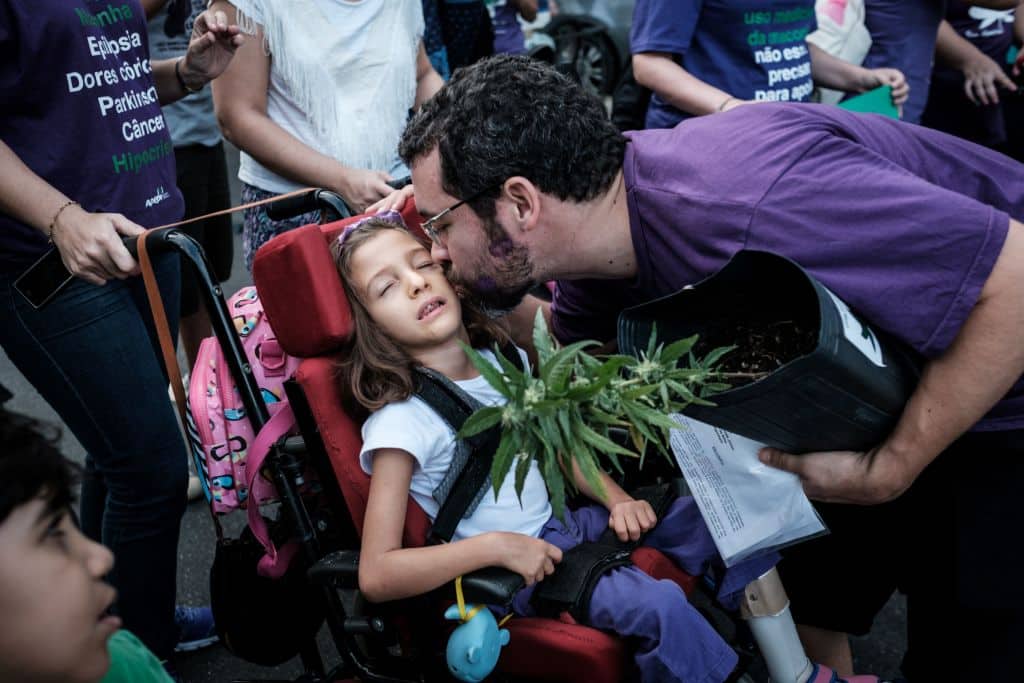World’s largest Catholic country split over decriminalising marijuana use
SÃO PAULO – With Brazil’s Supreme Court and Congress at odds over the decriminalisation of marijuana possession, the same clash runs through the Church in the world’s largest Catholic country, with some urging a hard line and others insisting the last thing Brazil needs is a new “war on drugs”. Lawyer Miguel Vidigal, who heads The post World’s largest Catholic country split over decriminalising marijuana use appeared first on Catholic Herald.

SÃO PAULO – With Brazil’s Supreme Court and Congress at odds over the decriminalisation of marijuana possession, the same clash runs through the Church in the world’s largest Catholic country, with some urging a hard line and others insisting the last thing Brazil needs is a new “war on drugs”.
Lawyer Miguel Vidigal, who heads the Brazilian Union of Catholic Jurists, is among those adamantly opposed to calls for decriminalisation.
“Studies show that marijuana is the entrance door for other drugs. It cannot be decriminalised,” Vidigal told Crux. “Drugs are an evil in itself. They cause health, psychological, and spiritual damages.”
Father Valdir Silveira, however, disagrees. After more than 18 years working with prisoners as head of the episcopal conference’s Prison Pastoral Ministry, he thinks the criminalisation of drugs has only contributed to expanding Brazil’s penal population.
“The policy of criminalising all drugs in all situations has resulted in the current crisis: mass imprisonment and growing violence,” Silveira says.
The contrasting Catholic reactions mirror the broader national divide.
While Brazil’s Supreme Court, currently led by liberal Chief Justice Luis Roberto Barroso, is analysing the constitutionality of decriminalising the possession of small amounts of marijuana, the country’s senate is debating a bill that would criminalise individuals carrying any amount of the drug.
A so-called “drug act” approved in Brazil in 2006 determined that drug users shouldn’t be punished as traffickers, but it failed to establish a maximum amount of possession that would differentiate a user from a dealer.
Up to this point, five justices have voted for the decriminalisation of the possession of small portions of marijuana, without fixing a precise total, while three others have voted against it.
Over the past few years, several segments in Brazilian society have complained that the Supreme Court increasingly has been assuming the role of a legislator, taking over responsibilities that should belong to the country’s National Congress.
It was the Senate’s President, Rodrigo Pacheco, who introduced the anti-marijuana bill. His idea, observers say, is to make clear to the Supreme Court that it’s up to congress to make that kind of decision. If his bill is approved, the Supreme Court’s decision concerning the potential decriminalisation of the possession of marijuana would become invalid.
When the debate over marijuana first began in the Supreme Court in 2015, the bishops’ conference released a statement in which it opposed the decriminalisation of drugs, arguing that it could increase drug addiction in the nation.
The episcopate argued that decriminalising drugs would expand their circulation, especially among teenagers, and more and more families would be impacted by the problems they generate.
Vidigal echoed that view, arguing that using drugs is not a matter of individual freedom, given that “they impact the whole society and thus are a collective problem,” he said.
“It is fallacious to say that the state shouldn’t regulate drugs. Society suffers their effects,” he added.
Silveira, however, questioned that assertion, arguing there are no studies showing that decriminalising drugs is worse for society in terms of violence.
“We cannot make decisions without a scientific basis. Unfortunately, that debate is completely dominated by emotional arguments,” he said.
While conceding that drug use is bad, Silveira said that “criminalisation only makes things worse”.
The “Prison Pastoral Ministry” that Silveira heads has argued that the 2006 drug act resulted in the disproportionate imprisonment of black and poor teenagers. They also claim the law failed to combat drugs and led to the formation of great mafia-like criminal organisations inside penal facilities.
“We don’t need anything like that,” Silveira said. “The war on drugs causes numerous deaths and is very expensive for the State.”
Photo: Marcos Lins Langenbach (right), who won the right to plant marijuana for the treatment of his five-year-old daughter, Alice Costa, who has cerebral palsy, during a march calling for the legalisation of marijuana along Ipanema beach, Rio de Janeiro, Brazil, 6 Ma 2017. (Photo credit YASUYOSHI CHIBA/AFP via Getty Images.)
.
![]()
The post World’s largest Catholic country split over decriminalising marijuana use appeared first on Catholic Herald.














